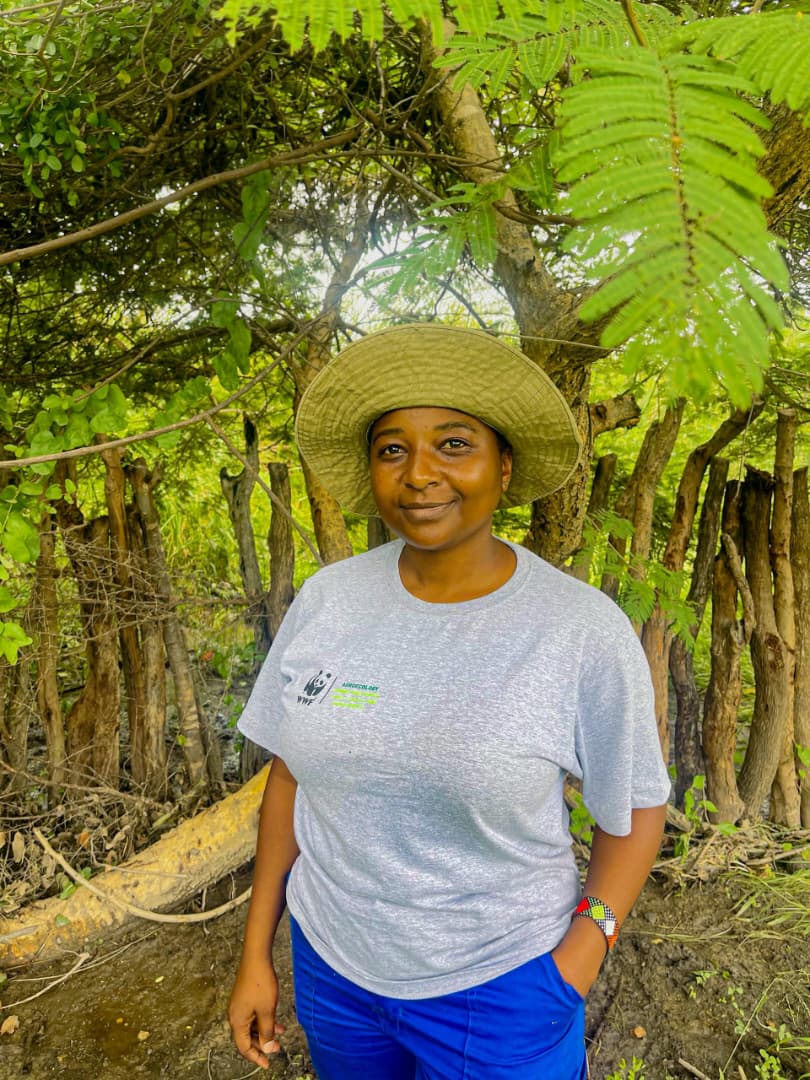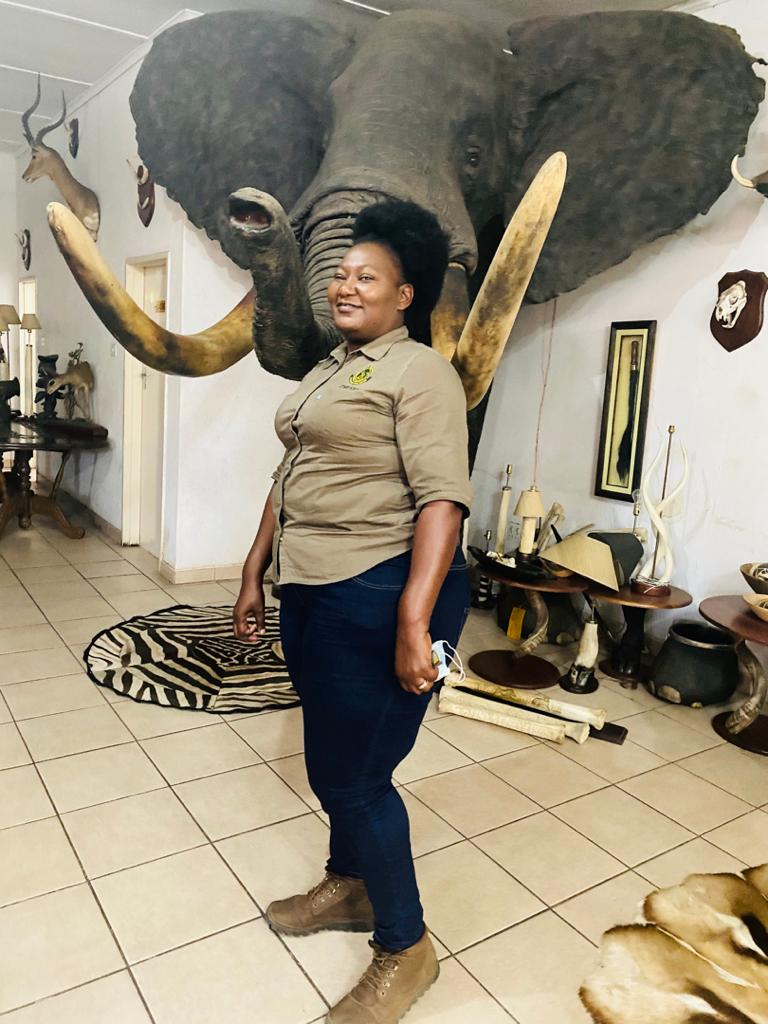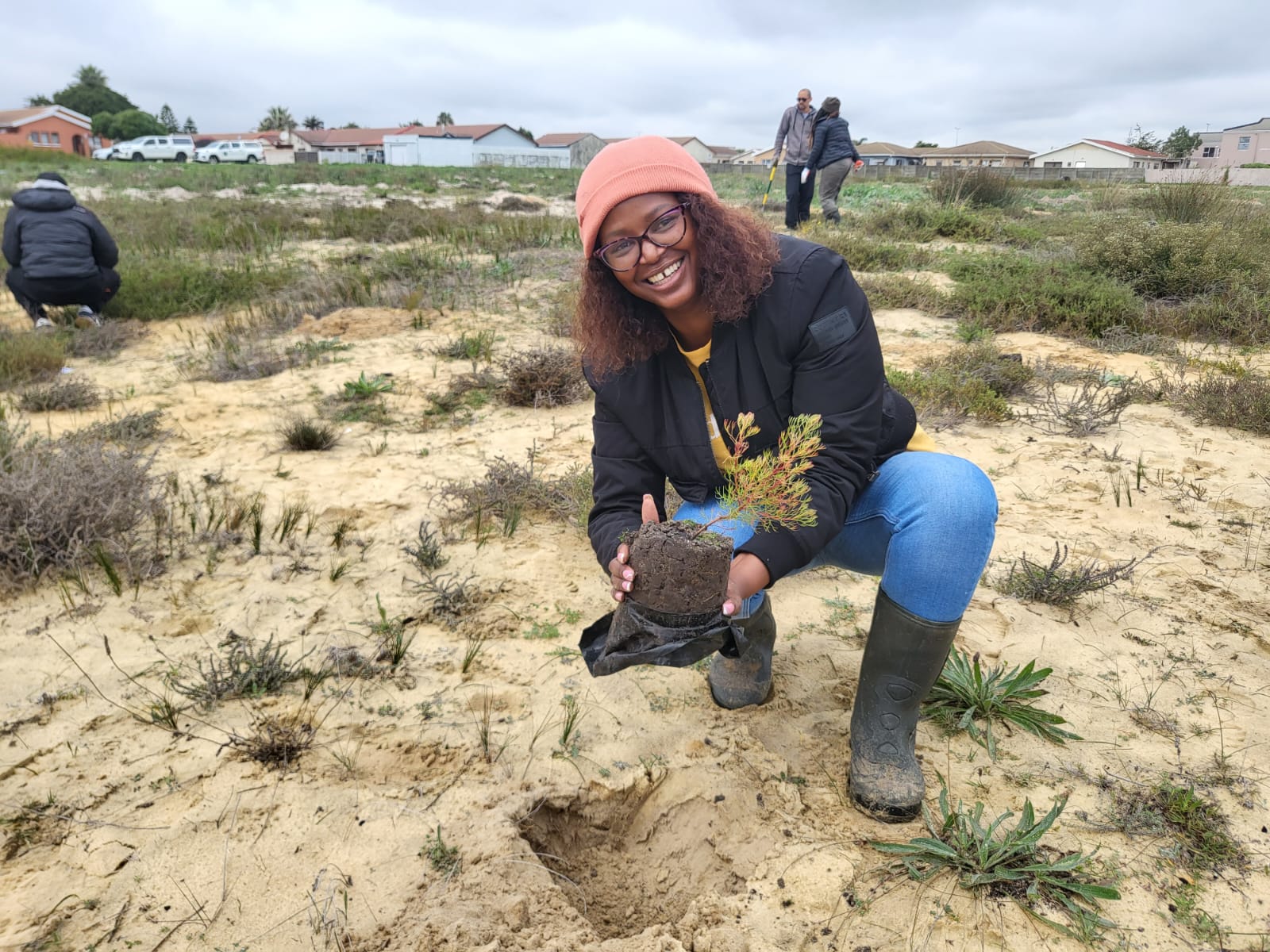There is and will never be a perfect set of conditions for work or life; you just need to start with the little you have
They are viewed as the generation that expect the special privileges without paying their dues. Variously described as lazy, entitled, difficult to manage, selfish and arrogant, millennials get a bad rap. This could, however, all just be a problem of perception.
Faith Muthoni falls under the growing number of people from this generation who are showing the sceptics that they are mature enough to understand the world they are taking on and brave enough to tackle it. The 21-year-old final year financial economics student at Strathmore University and the Co-founder of Moneyjar Kenya is a self-taught programmer, passionate about data science and behavioural finance. She also serves as a Chapter Director for Startup Grind, the world’s largest community of entrepreneurs.
As she shares her story with Damaris Agweyu, her message is crystal clear: It’s time to stop buying into generalized, misinformed stereotypes about people and turn our focus their individual’s potential and skills sets.

While many 19-year-olds are busy doing, well, 19-year-old things, you’ve been building a business; tell me how your journey started.
It was when I joined Strathmore University that I came to the realization I didn’t have any discipline when it came to managing my finances. Money would hit my m-pesa account and in an hour, it would be out. Towards the end of 2017, I lost my phone and had no money to replace it. I had to ask my parents to buy me a new one but they wondered how it was that I didn’t have money to do it myself; that’s when I started to seriously think about how I’d been spending my money. It turns out, I had been spending on things I didn’t even need. I met my co-founder, Samson Mzewa who was in my class and studying for the same degree in Financial Economics; he had similar challenges when it came to managing his finances. We quickly realized it’s a common problem for many people in our demographic and started exploring ways to solve it.
We came up with a basic pilot version of an app and called it Moneyjar. We gave it to other students to try out and give us their feedback. Soon after, we saw that there were some positive money habits that were coming out of using Moneyjar and that’s when we committed to building a full product to take to market.
How exactly does it work?
You download the app, create an account, add your financial goals and timelines based on your money lifestyle and start saving. We help you on your journey by continuously sending you reminders and tips for each goal.
How is it different from other savings apps out there?
Our largest differentiator is the behavioural element of the app. Lots of people who use Moneyjar used to use these other savings apps but because it was one account for all savings, they couldn’t keep track of how they were spending. With our app, you separate your savings for each goal. Our aim is not just to get people to save but to change people’s attitudes and behaviour when it comes to money.
Who are the majority of your users?
Initially, campus students just because this is where we did our pilot. But right now, almost half of our users are between 20-25 and the other half are between 25-30. So primarily, we say from 18 to 30-year-olds.
And how is it all going so far?
I am very excited about uptake. When we started, we didn’t expect a large audience outside our local community, but now we have all kinds of people sharing success stories. We’ve only been doing this for about a year and have slightly over 1000 users. Hearing positive feedback about how our product is helping people is already a huge achievement for us.
Most people who are still in school are not thinking about starting their own businesses, how is it that you developed this mindset?
I’ve always been very driven. As soon as I finished high school, I started working for a startup. This gave me the right exposure at a young age. I also had an enabling environment at home with parents who are very understanding. I explained my idea to them and they were ready to fully support me- I am very lucky in that way.
What advice to people of your demographic who may be thinking about starting their own businesses?
If you have a business idea, joining an already existing company to understand what really goes into a business helps you have more realistic expectations. I learnt early that you cannot take customers for granted; you have to work really hard for each and every single one. It’s not what we see on TV where people start businesses and become millionaires in a year, it takes a lot of time. I was prepared for that when I started.
People really do need to understand that there are no instant millionaires when it comes to honest work
I mean really! We registered Moneyjar in September 2017 but we didn’t properly become a business till 6 months later. One thing I’ve learnt is if you get into business for instant money, you will give up in the first month because when you realize you only have 5 customers and 2 of them hate your product, it becomes hard. Your reason for getting into business is very important.
In our case, before Moneyjar even became a solution to a customer problem, it was a problem that was directly affecting us. That is what kept us going. We only had a 100 downloads those first 6 months and were questioning ourselves- was there something wrong with the product? Were we not marketing hard enough? We came to realize it’s just the reality of business.
You can’t build something and everybody loves it. People will criticize everything, from your colours to your font and you have to learn the difference between constructive feedback and feedback from someone who is just trying to ruin our day. There have been hard days but if you are committed and know your why you will get through them.
Business partnerships can be rather tricky, how are you managing yours?
Because we had worked together on a different project before starting our business, we understood each other’s working styles. I am the kind of person who needs to schedule my day on my calendar while Samson is the kind of person who can do nothing all morning but then code all night. I’d say understanding each other’s personalities is crucial. You don’t necessarily have to be friends but you have to have mutual respect. Many people say I’ll get 2 or 3 of my buddies to start a business and yes, if you’re friends it’s a plus and but the really important thing is to have similar value systems.
It’s also important to differentiate roles early. Samson and I struggled a little in the beginning because we both wanted to do everything; conflict comes when you’ve made a decision and someone is second-guessing you or you’ve committed to doing something and you don’t. We later came to an understanding about who does what depending on our respective strengths and only then did we stop stepping on each other’s toes.
Honesty is also very important. If you feel your partner is wrong even if it’s not in your area, it’s important to tell them.
Have you ever faced discrimination as a woman as opposed to your co-founder who is male?
Yes. You go to showcases and events and people feel that you’re only there because of affirmative action so they don’t take you seriously; you show up at a meeting and someone asks you if you are in marketing. People have a pre-conceived mentality as to what a business person looks like. I try to be tough but pleasant- because the other thing is, if as a woman you’re constantly correcting people then you are described as an angry woman, whereas if my co-founder did that he’s just be described as an assertive person. There are people who prefer to meet both me and my co-founder and not just me – it’s unfortunate because if you actually do need to get a particular client, you just comply. The discrimination is never in your face, its small passive-aggressive things and you can almost miss them, it’s usually later that you think hmmm…
Do you get this from women or men or both?
It’s mostly from men. For women, since we are kind of fighting the same fight it’s a bit less but I have faced some discrimination from some female heads of departments. I have conversations with my sisters and my mum and even for them, in their places of work, they face this so it’s not just me or women in entrepreneurship, it’s women everywhere. There are people who just can’t see what they are doing is wrong so you just take it in your stride and remind yourself that your capabilities and your mind are what matter, not your gender. Sometimes it affects you psychologically- and it can even manifest in how you dress but overall, having a positive attitude and talking to mentors helps a lot.
Biggest challenges so far?
Getting people to believe in us as a startup. When we used to talk to customers, they’d be like, "Oh we’ve never heard of you, how do we know you won’t disappear with our money?" And rather than take offence, we listened and took measures to allay their fears to make sure our operations were above board. A lot of our work this year is focused on that in terms of getting relevant regulations and larger financial partners on board- we need to earn our customers’ trust.
I think this is the same for any start-up and when you are running a business that has no name and when you are competing with established players, you have to constantly prove yourself and show the difference you are offering. You also have to be very vigilant in your personal service- your response time has to be quick, you have to solve problems fast, any small thing can make someone lose confidence in your product.
Was getting startup capital a struggle?
Because a lot of the product was developed in-house, meaning my partner and I built most of the product, we managed to keep our costs low. We were relying on money from our parents, which was very generous of them, but we still had to keep our expenses low- which is hard to balance because we still have to make sure we are offering a high-quality product. We also got a lot of free professional help from people who have been in business. After we were shortlisted as finalists in the Standard Chartered Women in Tech Awards, we were incubated at ilab for 6 months and that helped us get free access to experts and mentors who helped us understand a lot of business basics.
Speaking of the Women in Tech Awards, you were the youngest finalist in your cohort, how did that make you feel?
It was huge. I didn’t expect there to be such a gap between my age and those of other participants. I was there with parents, people who had been working for years…I almost felt like an impostor! There were people with long CVs and I was like I am a Student at Strathmore and that’s it. It was a huge validation to have such a big institution tell us that our work is important enough for them to support.

Faith addressing delegates during the Afrilabs annual gathering and Sahara sparks 2018
You’re a millennial. I imagine you know what the rest of the world has, generally, been saying about your generation.
That we are lazy, arrogant, entitled know-it-alls who complain all the time.
And that you have contempt for authority, are self-obsessed, are unable to figure out your careers and act like you don’t care about anything…the labels are endless.
I know but they are not necessarily true.
What is true?
People need to understand that because we grew up in the information age, we are more aware of what we want than say previous generations. And because of this, we tend to say ‘no’ more often and sometimes this comes off as being arrogant or entitled.
If you look at the case of unpaid internships, for example, a lot of the conversations about whether to pay interns or not come from people saying that they will only pay people with experience. But with our generation, because we know the value of our time and how our skills actually contribute to a business' success, we feel that we should be paid for our time and yet when our parents were growing up, internships were free. So it’s really a disconnect between different generations.
You cannot send us emails at 6.30 in the morning and expect an immediate response because we understand work-life balance, we are at home with our families, we have seen the long term effects of certain things and we factor these in our decision making. Yes, some people are genuinely entitled but this can be said for every generation and it usually stems from the fact that certain people grow up with a lot of wealth and take certain things for granted. But for most of us, it’s just that we communicate our needs openly. With older generations, young people just used to do what they are told. Our generation is not afraid to speak up.
And the interesting thing is while young people externally look like they only interested in frivolous things, a lot of them think about their futures and what they want for their lives. They may not be very vocal about this but they think about it.
Would you say you have struggled at all in life or would you say you have been very lucky to come from a good family, supportive parents, a great education, the right sort of opportunities come your way and that’s largely the reason why you are who and where you are?
I can’t really say I have struggled, I grew up with very supportive parents and I admit, I was exposed to a lot more opportunities than others by virtue of the schools I have attended. Kenya High is a great school and in Strathmore, we don’t have the problem of constant strikes, the university is actively looking for opportunities for us…so yes, there is an element of good fortune in terms of my upbringing there but there is also a lot of effort and hard work. I think the regret in life is not taking advantage of the opportunities that you had. Working hard is still a very big factor in terms of where I’m at; many opportunities were available to everyone but not everyone took them or made the effort. Even with my business, it has all been hard work and investment of time. I think I talked to a hundred people just in the first month of doing my research and this was time I was taking aside from my studies.
What skills have been invaluable on your journey?
Being a good listener and I mean listening to understand not listening to respond. If you can be an empathetic listener, if you can listen without judging, without having a ready answer in your head then you will come across so many opportunities and move forward faster. In terms of technical abilities, basic computing. Being able to make presentations and create proposals- for this generation it’s a huge plus. You don’t necessarily need to be a programmer but if you can stand out for something, then you will have an advantage-maybe you make great presentations or your documents don’t have grammatical errors. These sound like small things but in my experience, out there, it’s not as obvious as people think.
Describe yourself.
Is there a limit of words?
You choose, you can use one word, ten words, a paragraph...
I am curious and always want to know how things work. Before I went into Finance and Technology, I’d done a million other things. I did events…I was into science…I was a painter at some point… I love exploring different fields, not for any reason other than intellectual satisfaction. I am optimistic and extroverted; I’m also a bit unconventional- I don’t think there is one way to do things- there are a thousand ways to arrive at a destination.
Do you hope to get married and have kids one day?
I do have big intentions to settle down and have a family but it’s not an immediate goal for me. I feel like my early 20s are my selfish years; they’re the years where I plan to invest in my dreams. I want to upscale myself, learn new things, travel...maybe in 5 years or so I may want to settle but not right now.
What’s your definition of success?
Impact tends to be a word that I’m constantly thinking about. Even if you make a lot of money but no one has become better off by using your product or being around you, are you really successful? Have you made the environment better? Have you improved someone’s life? Have you contributed to the betterment of society in any way? If a person or company can make someone happier or healthier or lift their standard of living in any way or form then I think that is success.
Parting words?
A lot of people will read this story and be like, yes she may be hardworking but her story is completely different because she grew up in place X and went to school Y, but the fact is, there is and will never be a perfect set of conditions for work or life. You just need to start with the little you have. At 19 there was a lot I didn’t know and now at 21 there’s a lot I still don’t know about business but I had the courage to take the first step and in the process, found so many people who literally, were just waiting for me to take that first step. Whether you are 19 or 35 or 55 you just need to believe in yourself enough to take the first step. Life is about working with what you have.
For more wisdom and insights from Faith Muthoni, get your copy of Different Paths, One Journey HERE.





